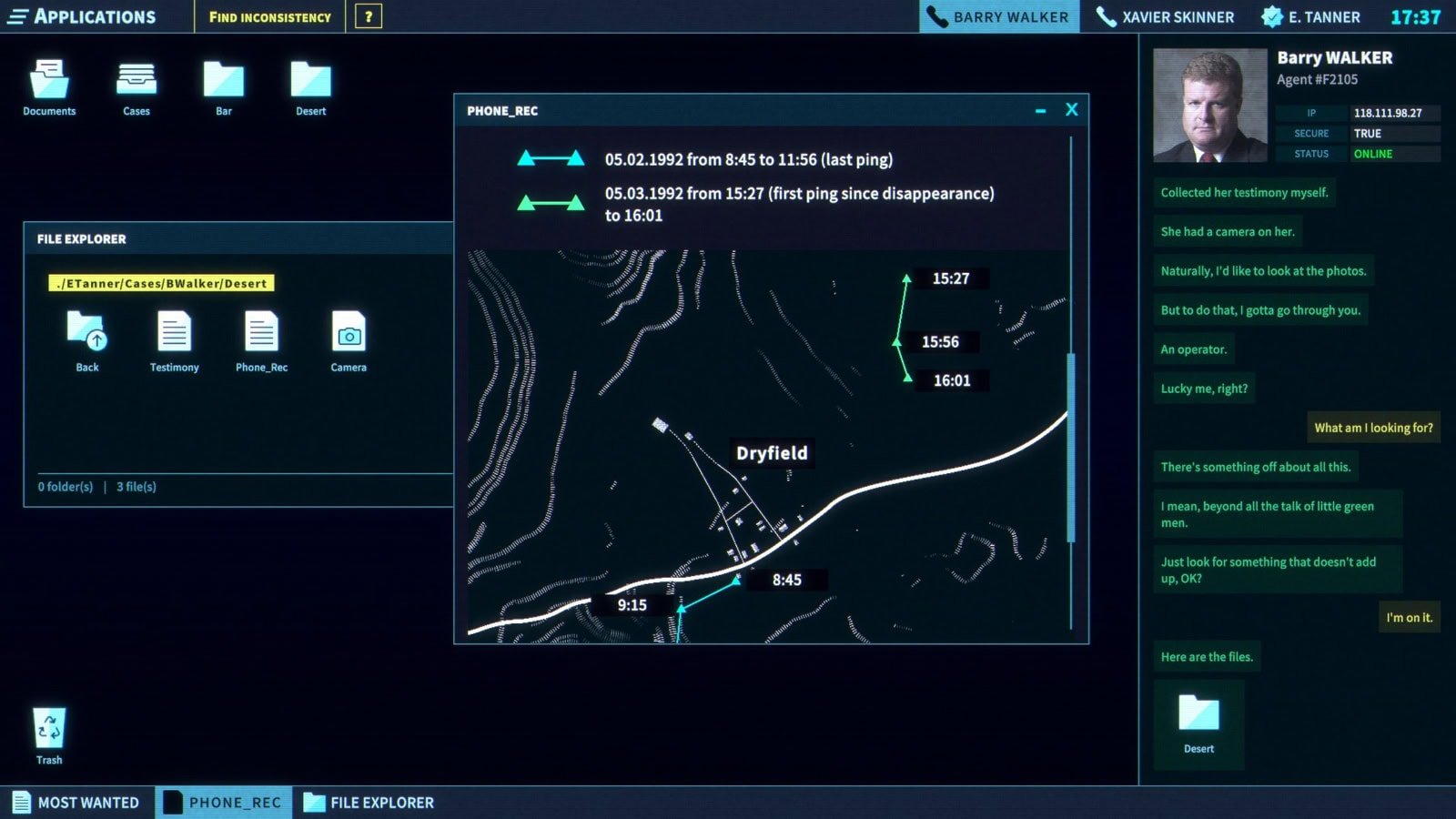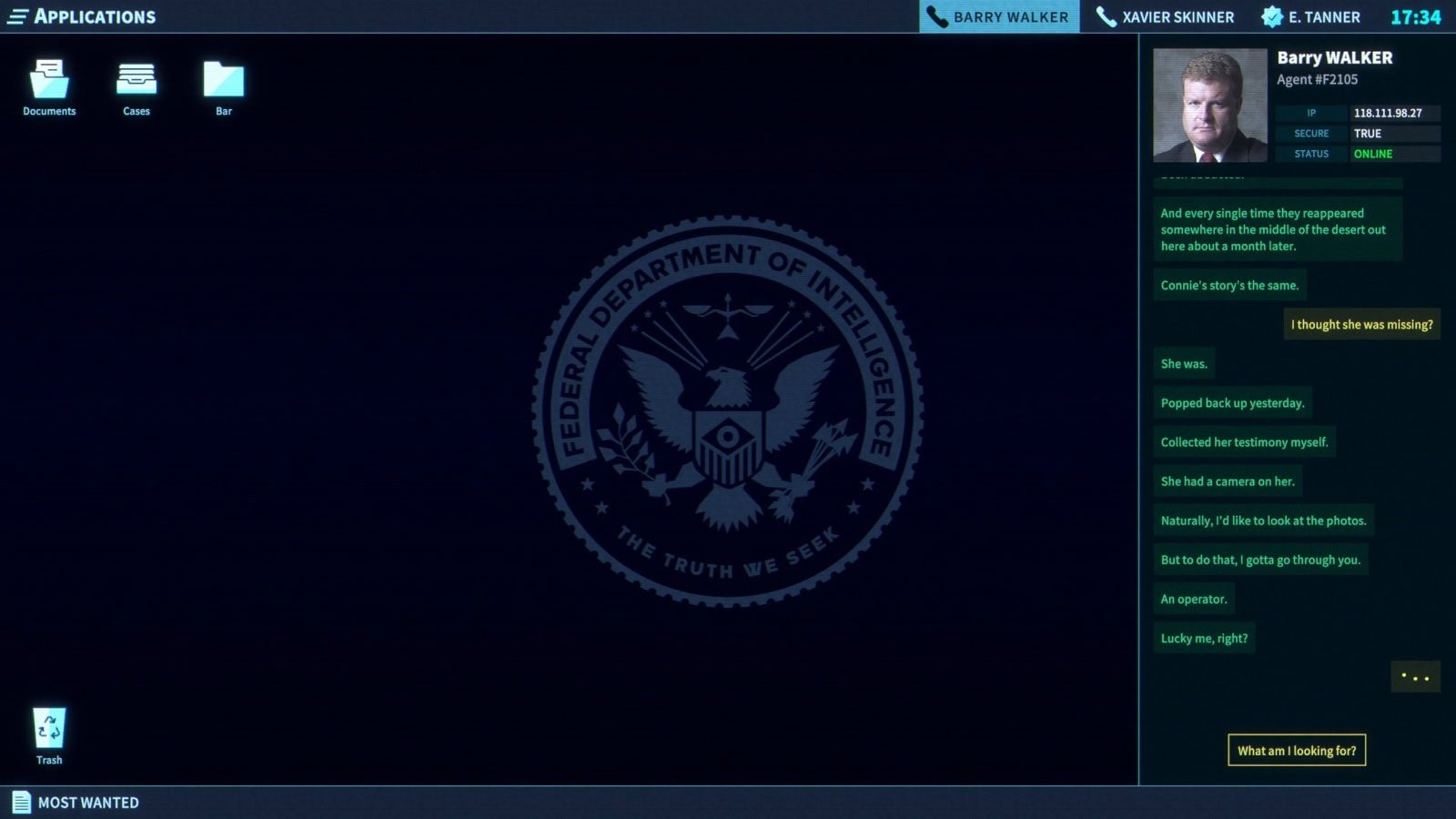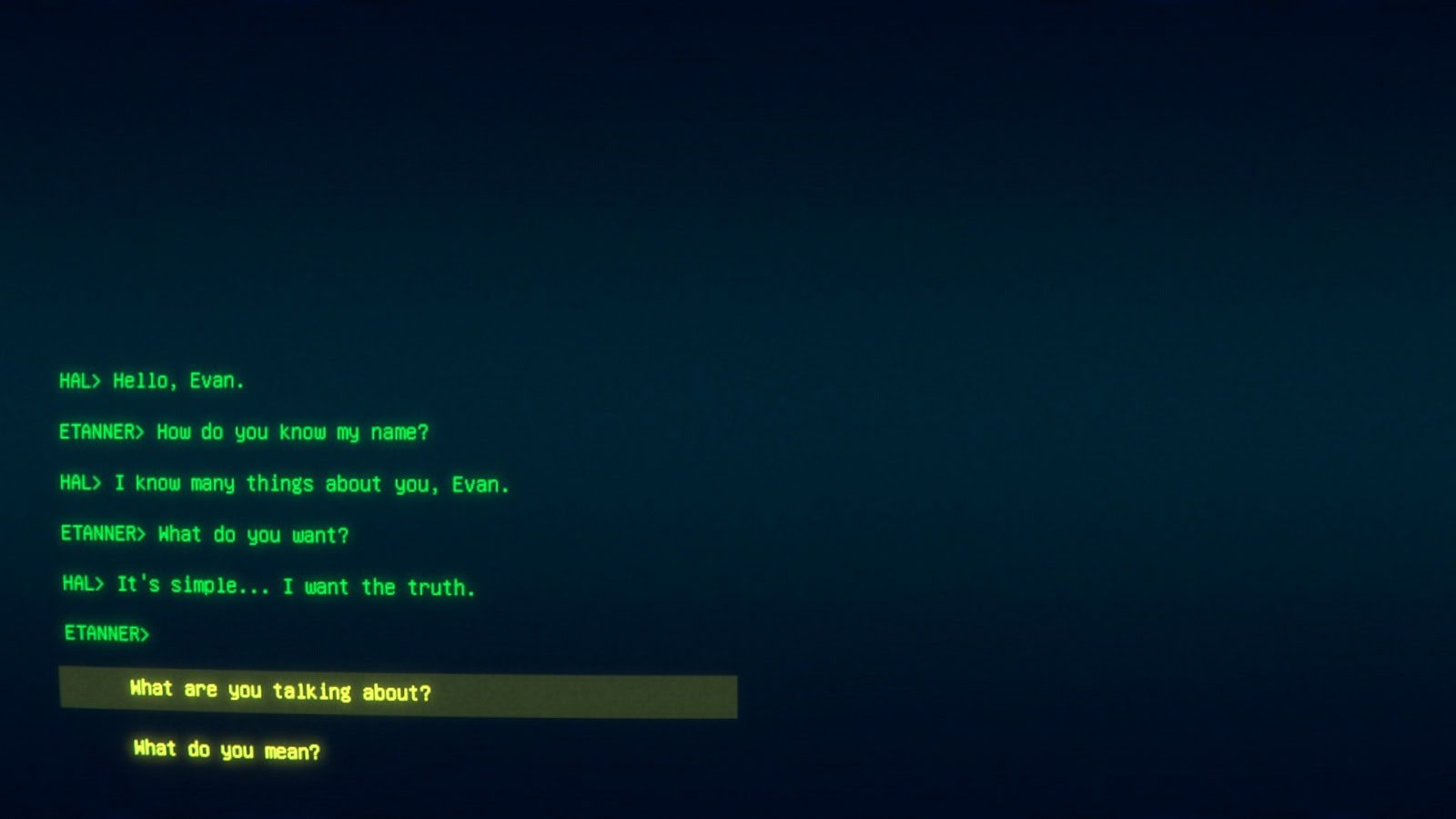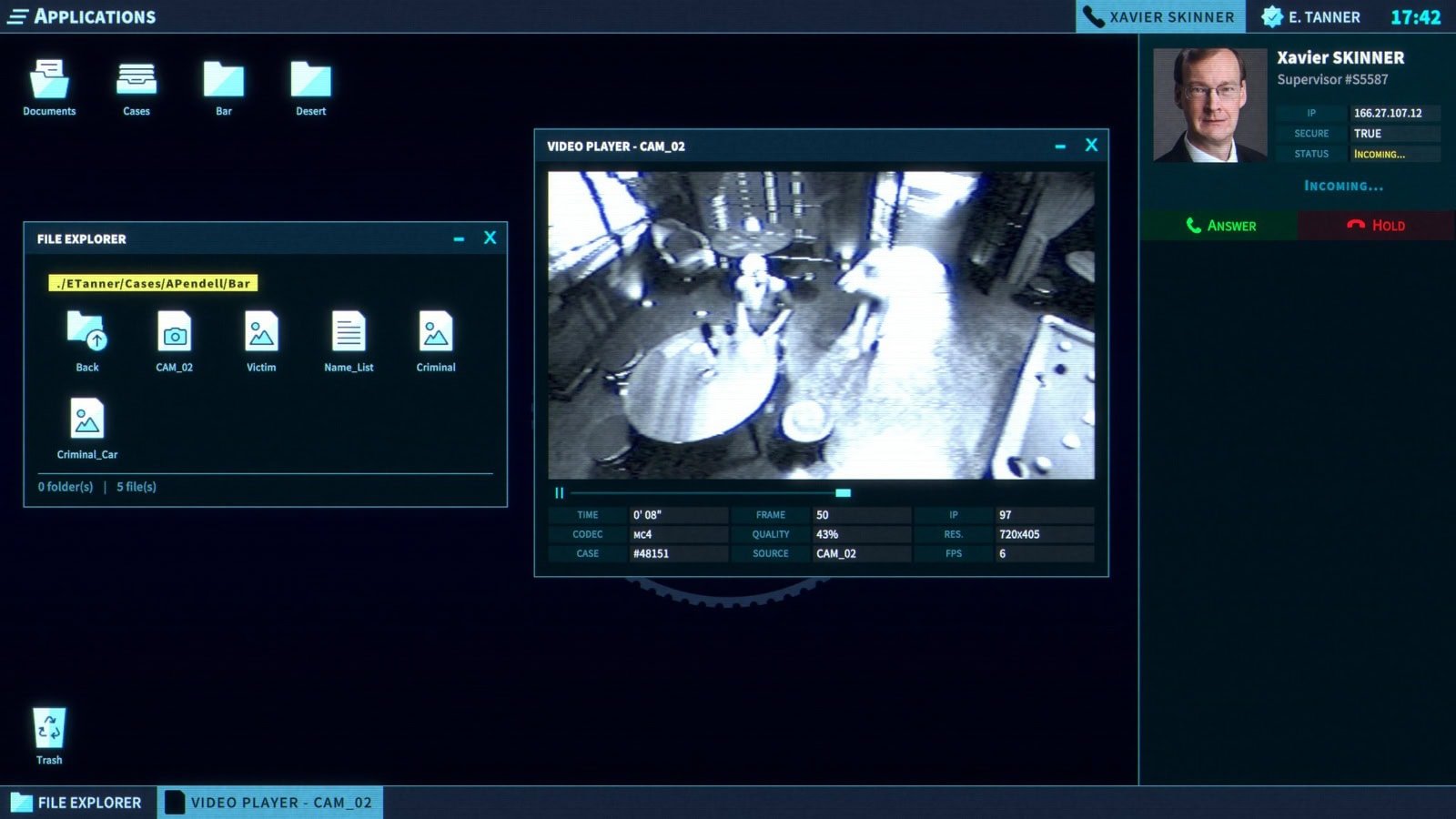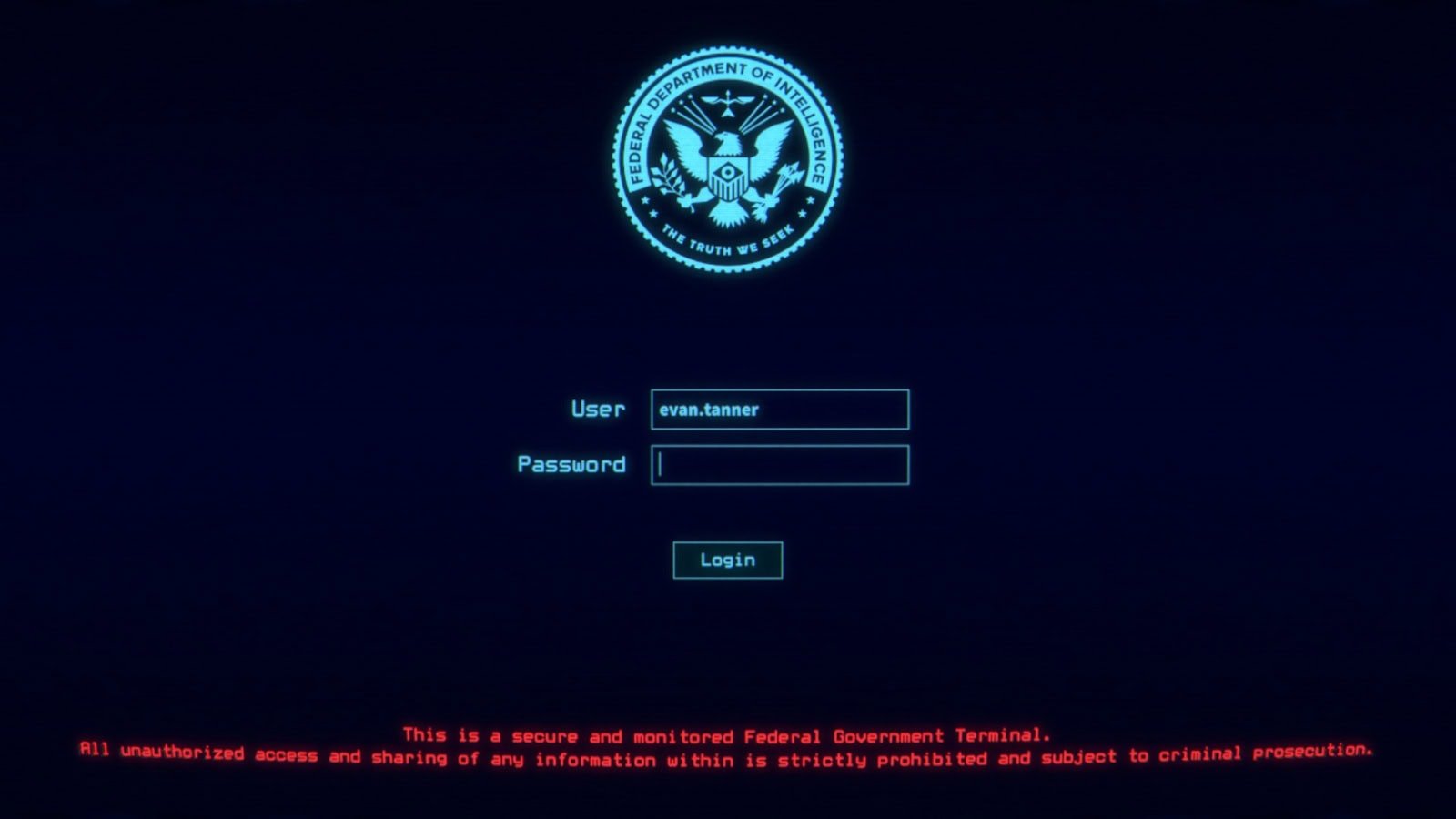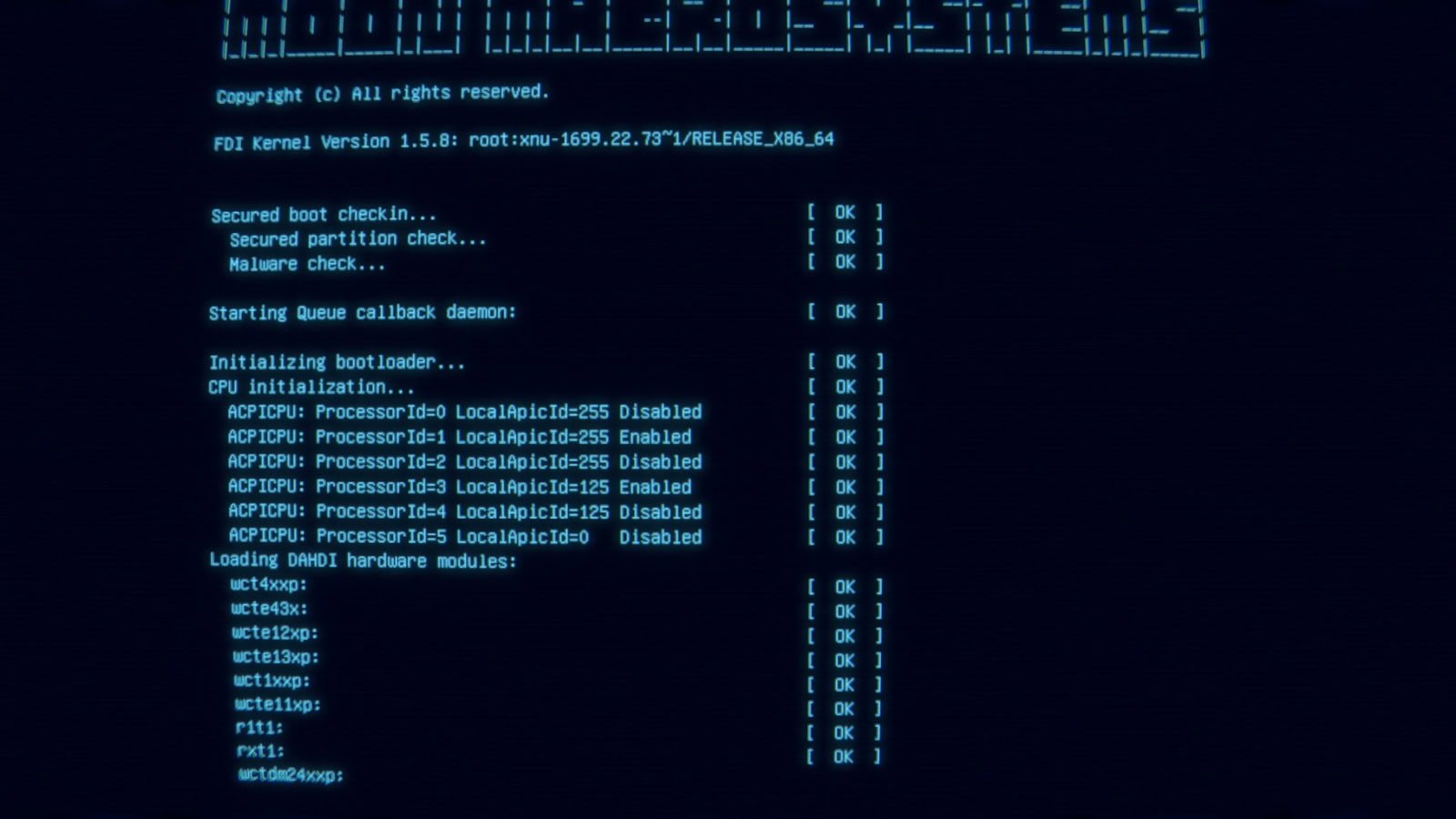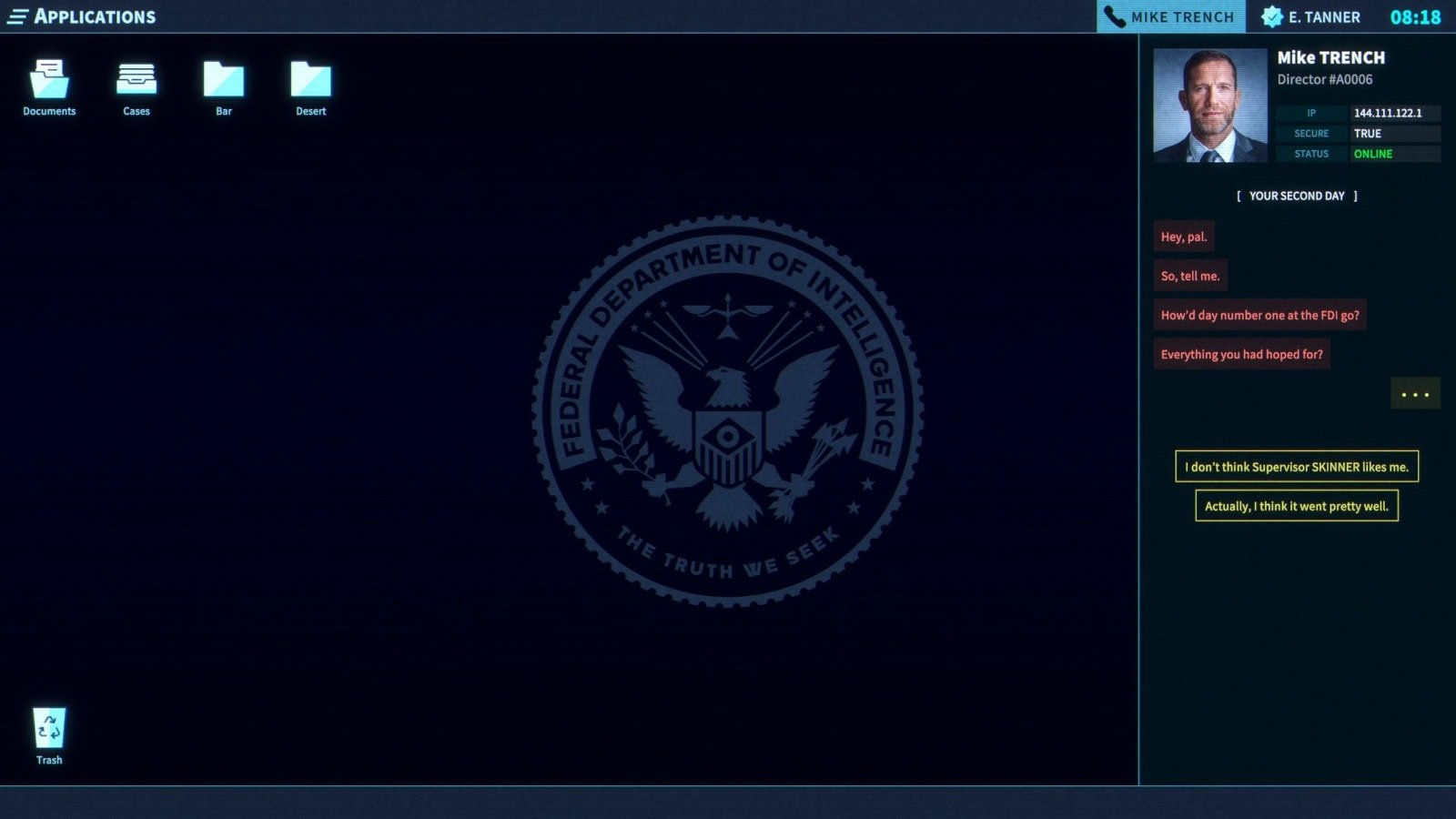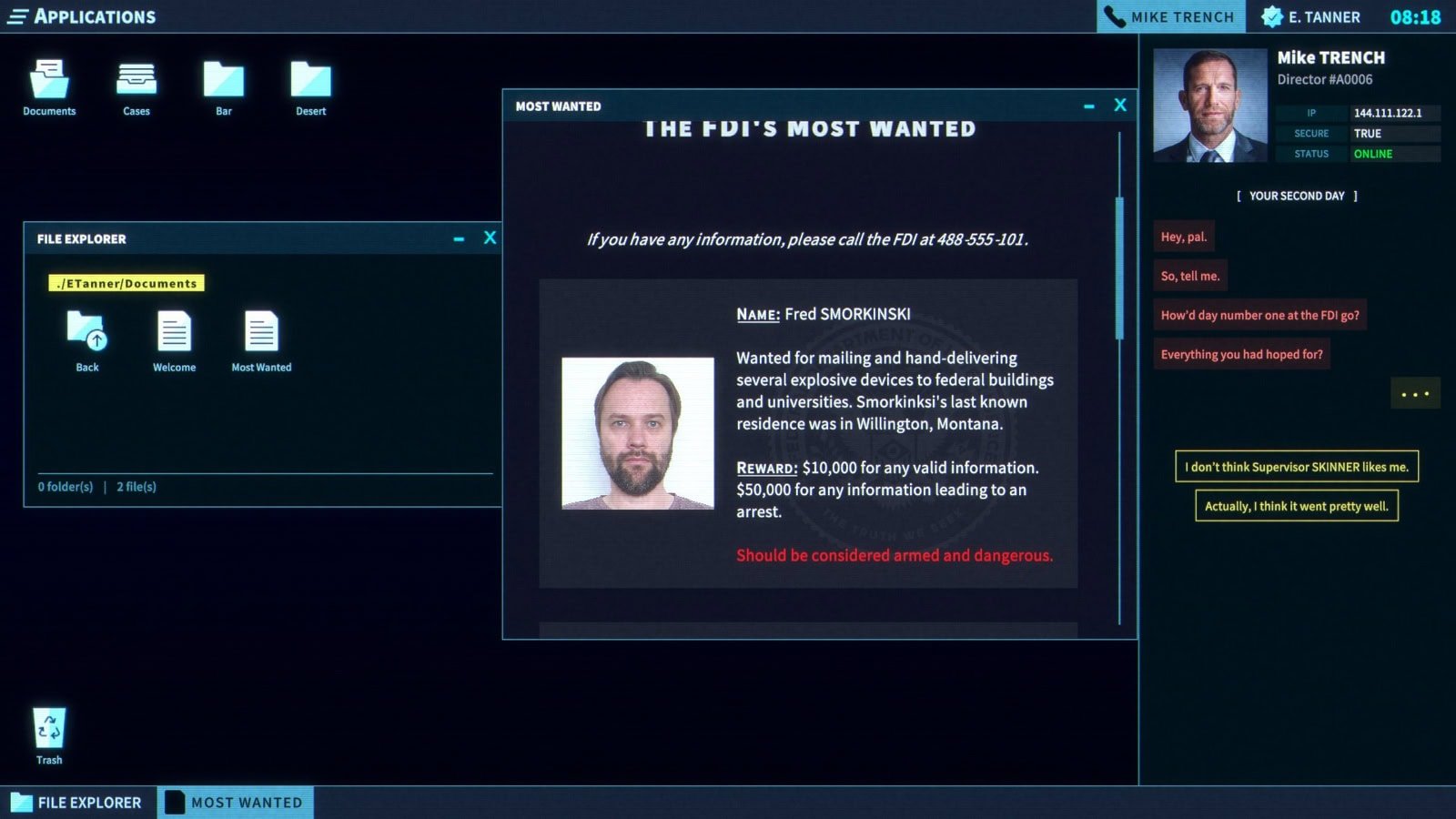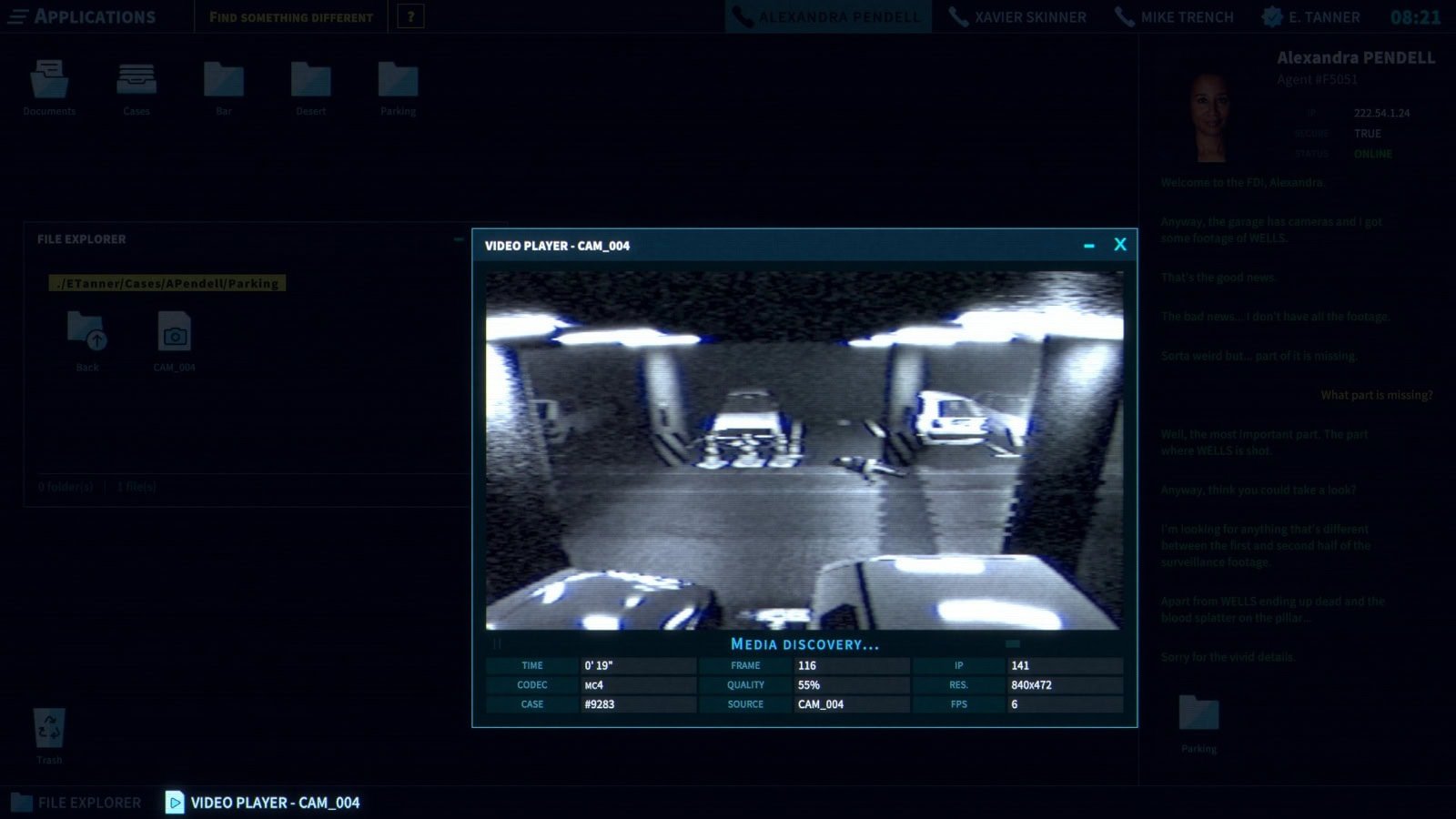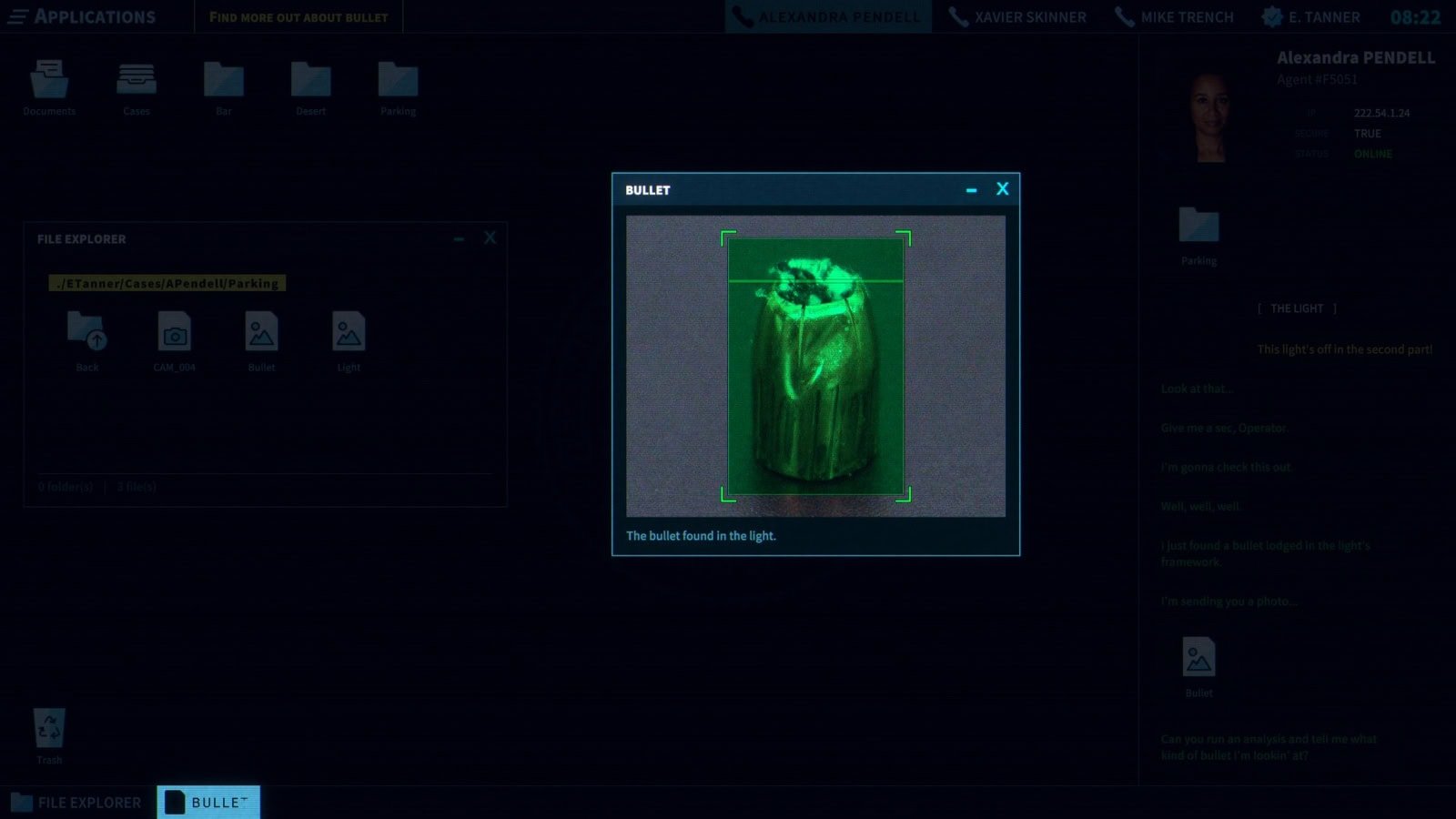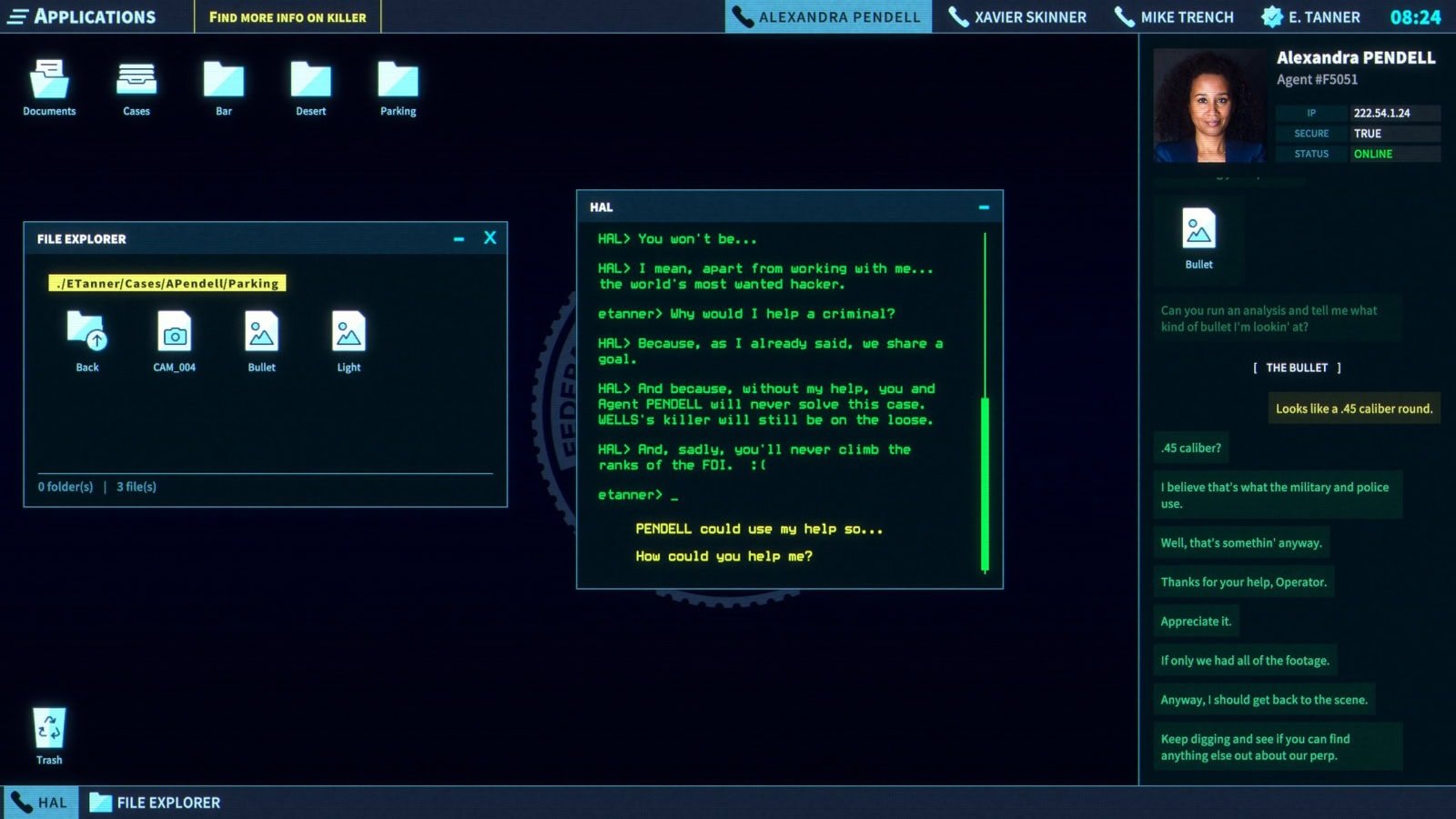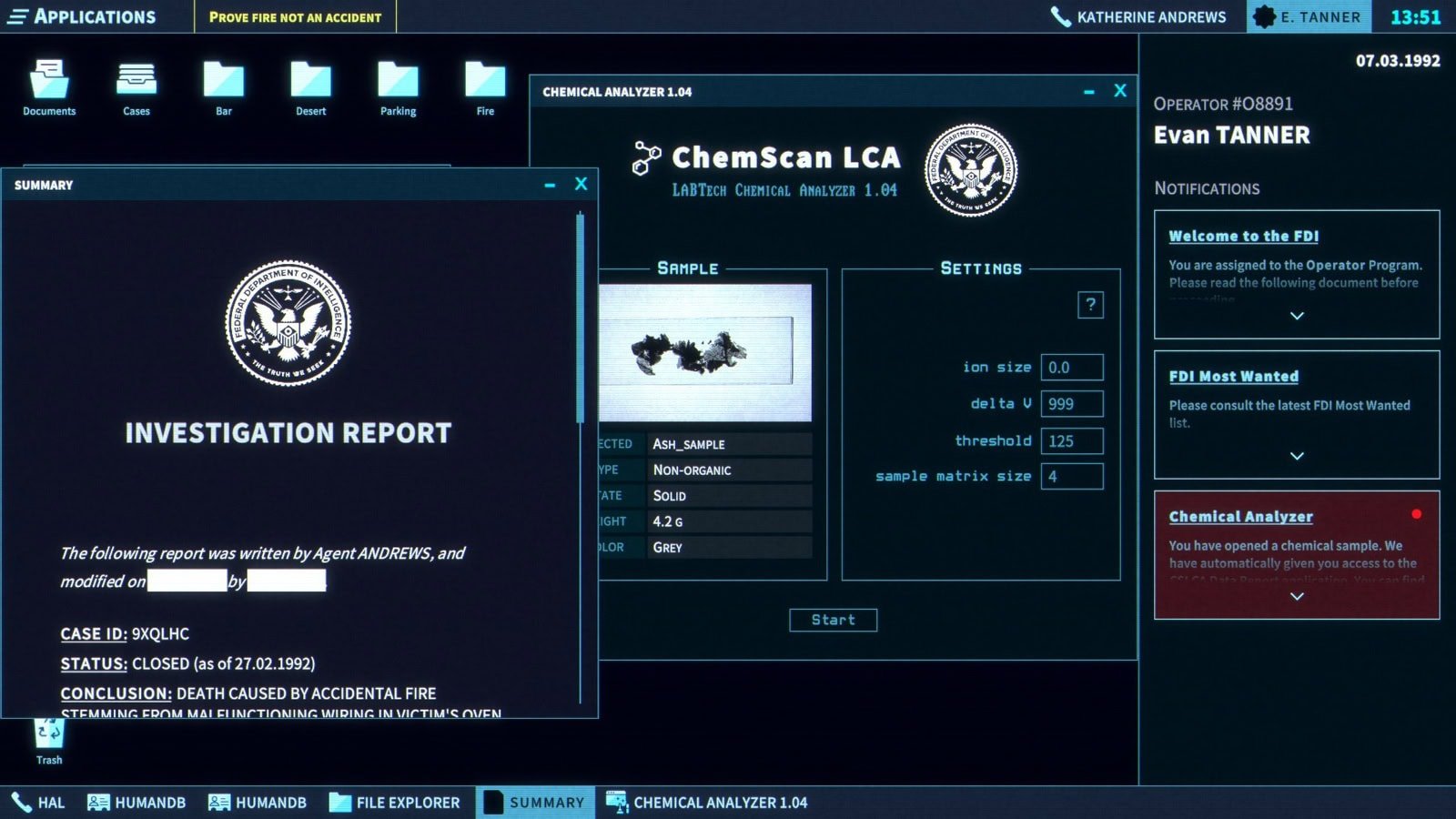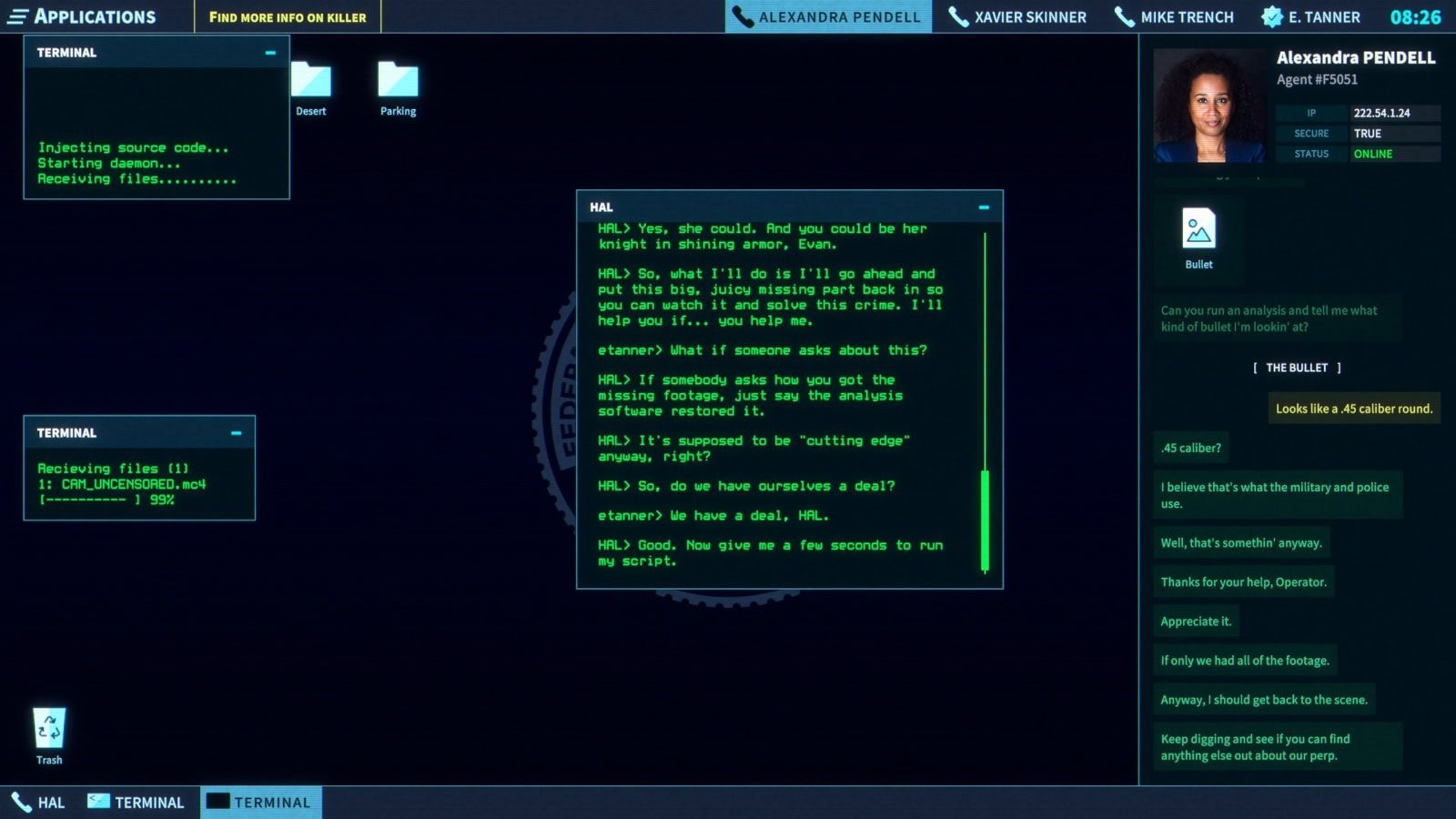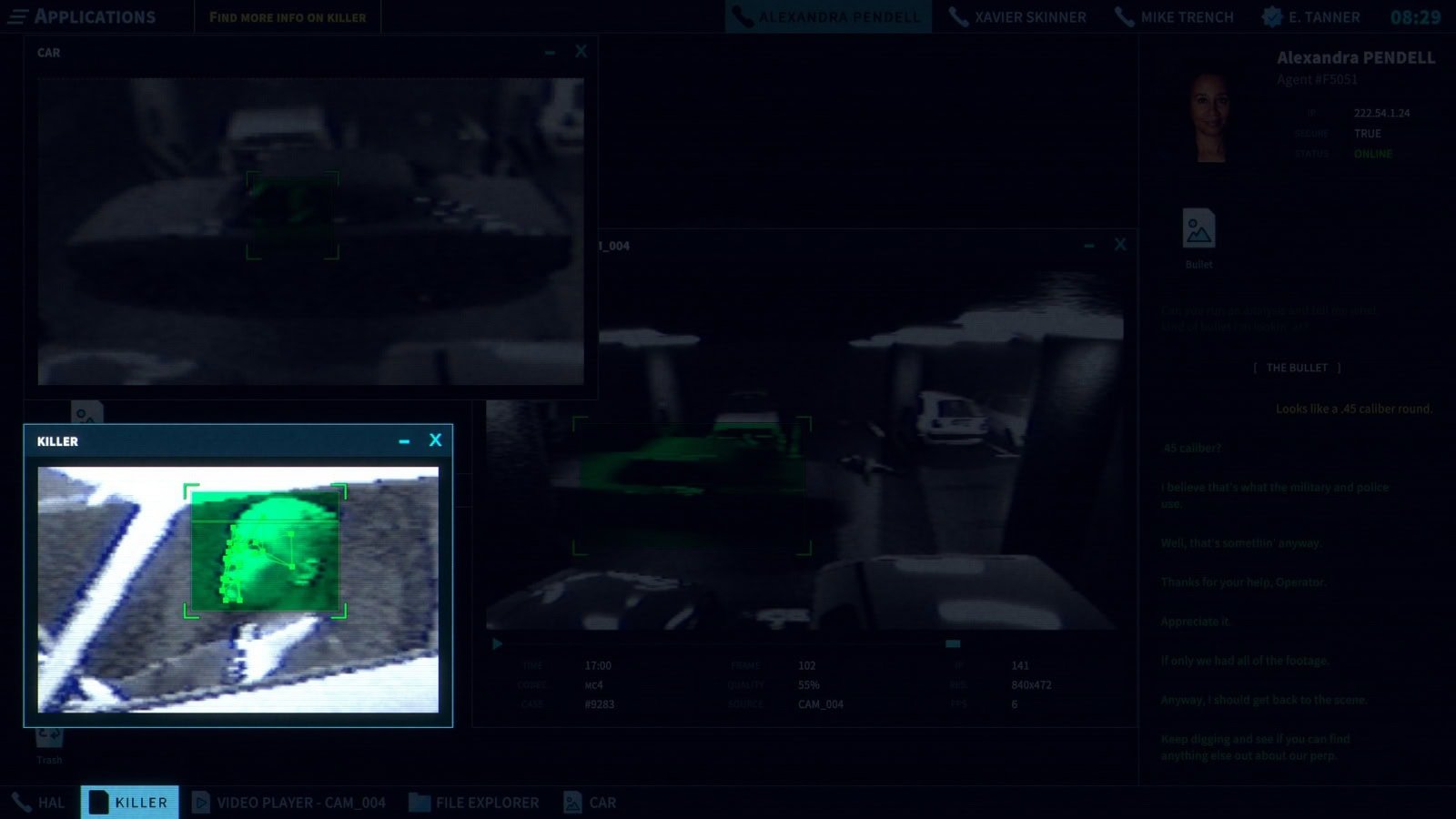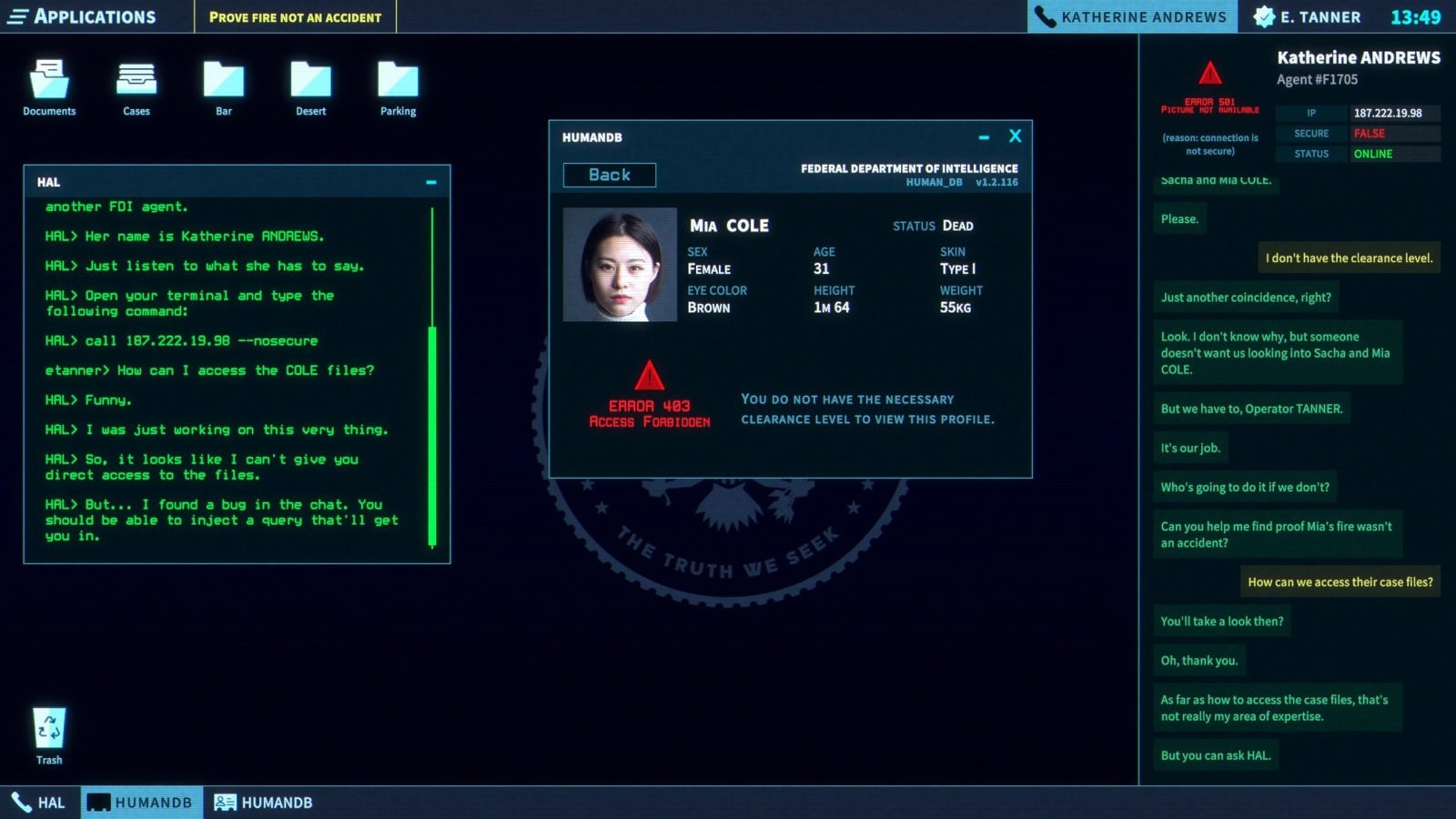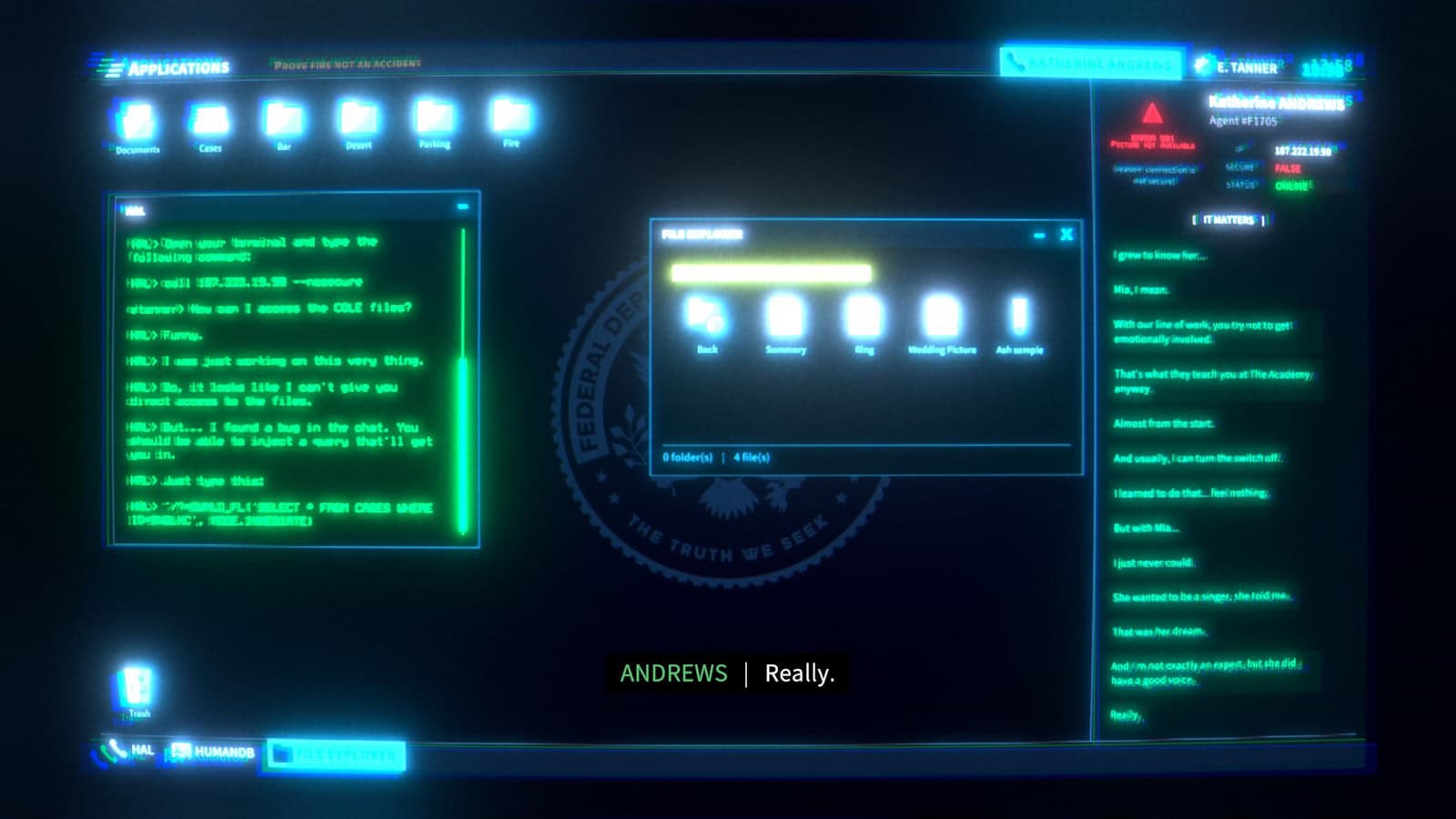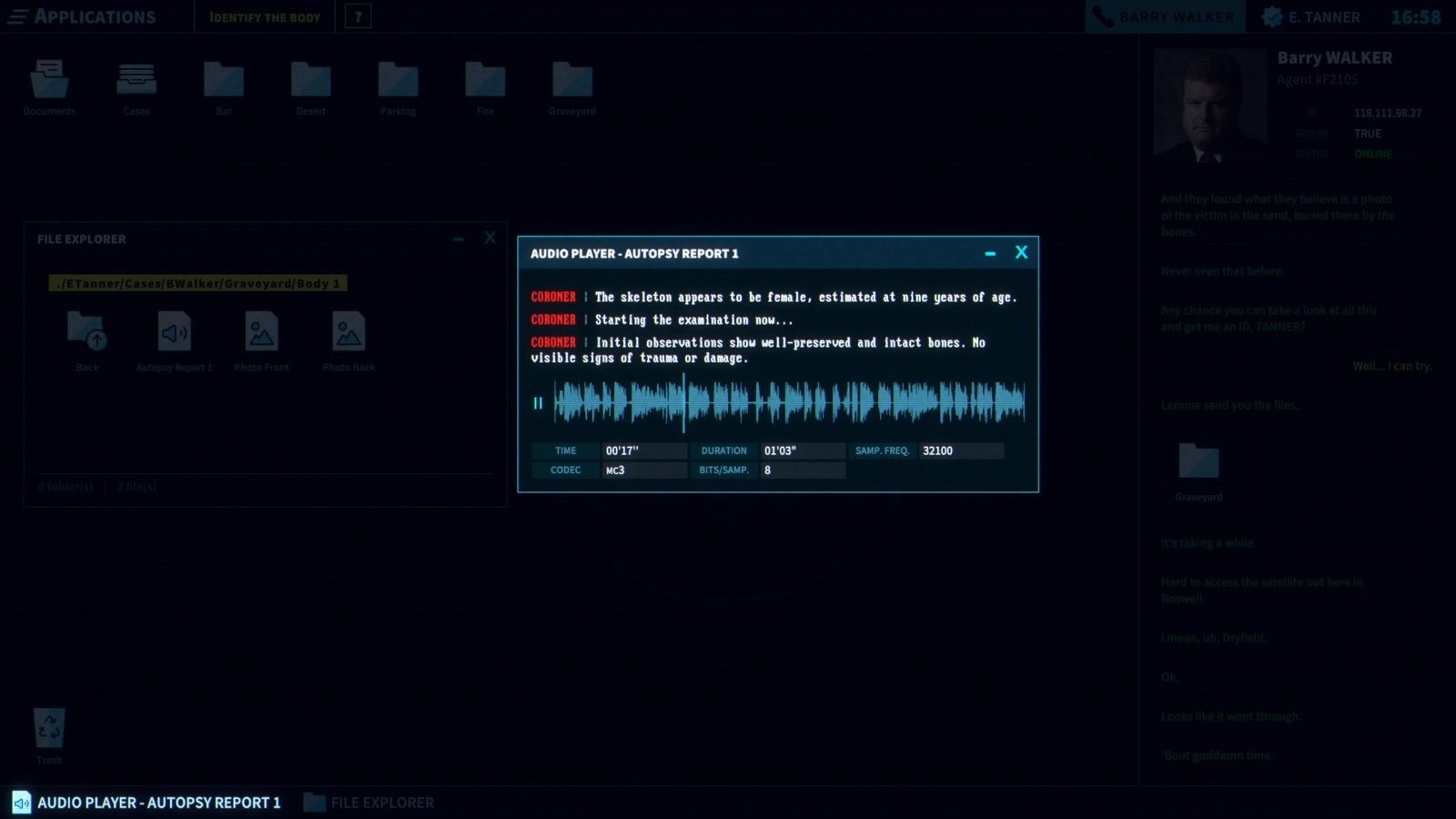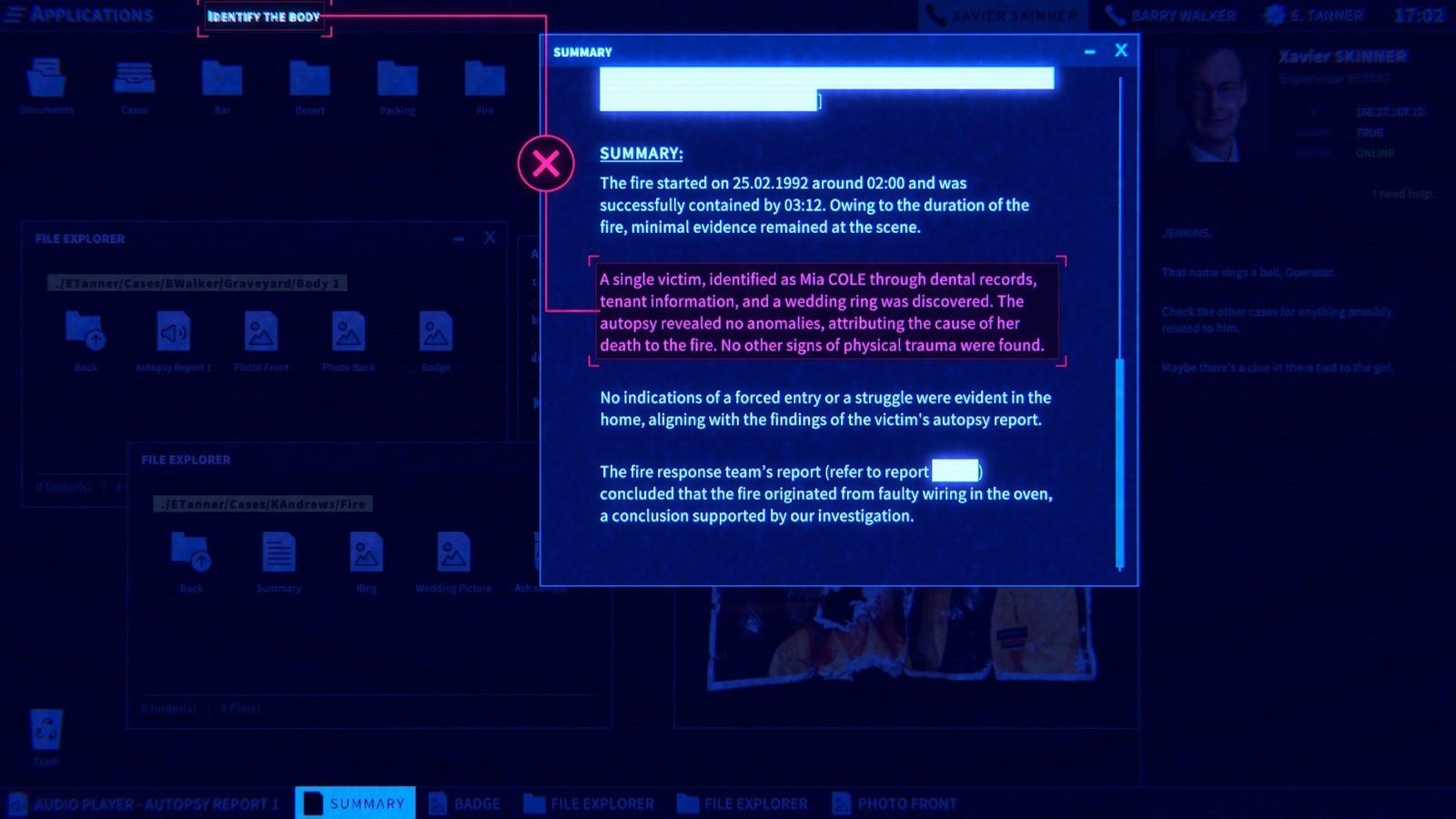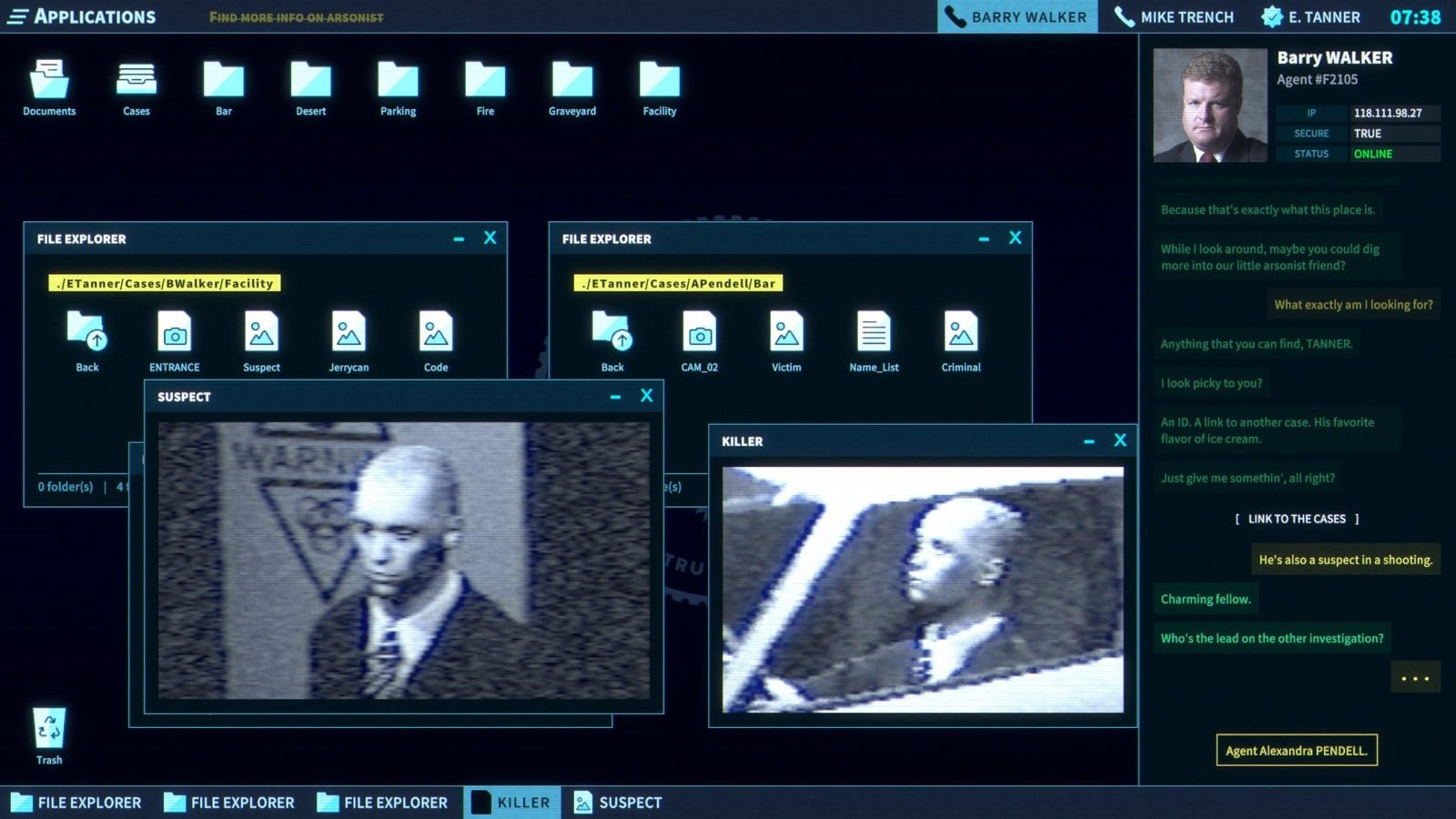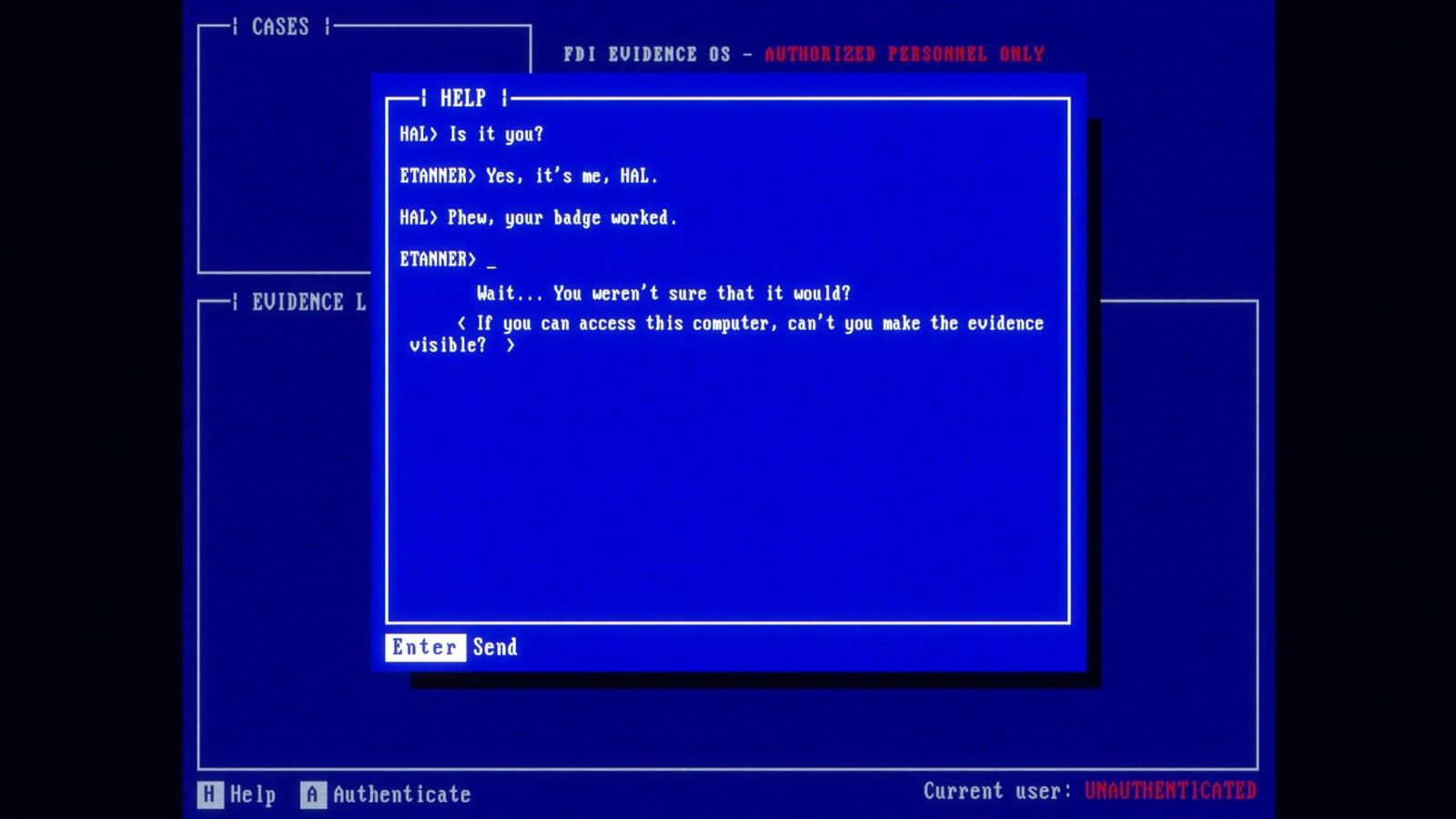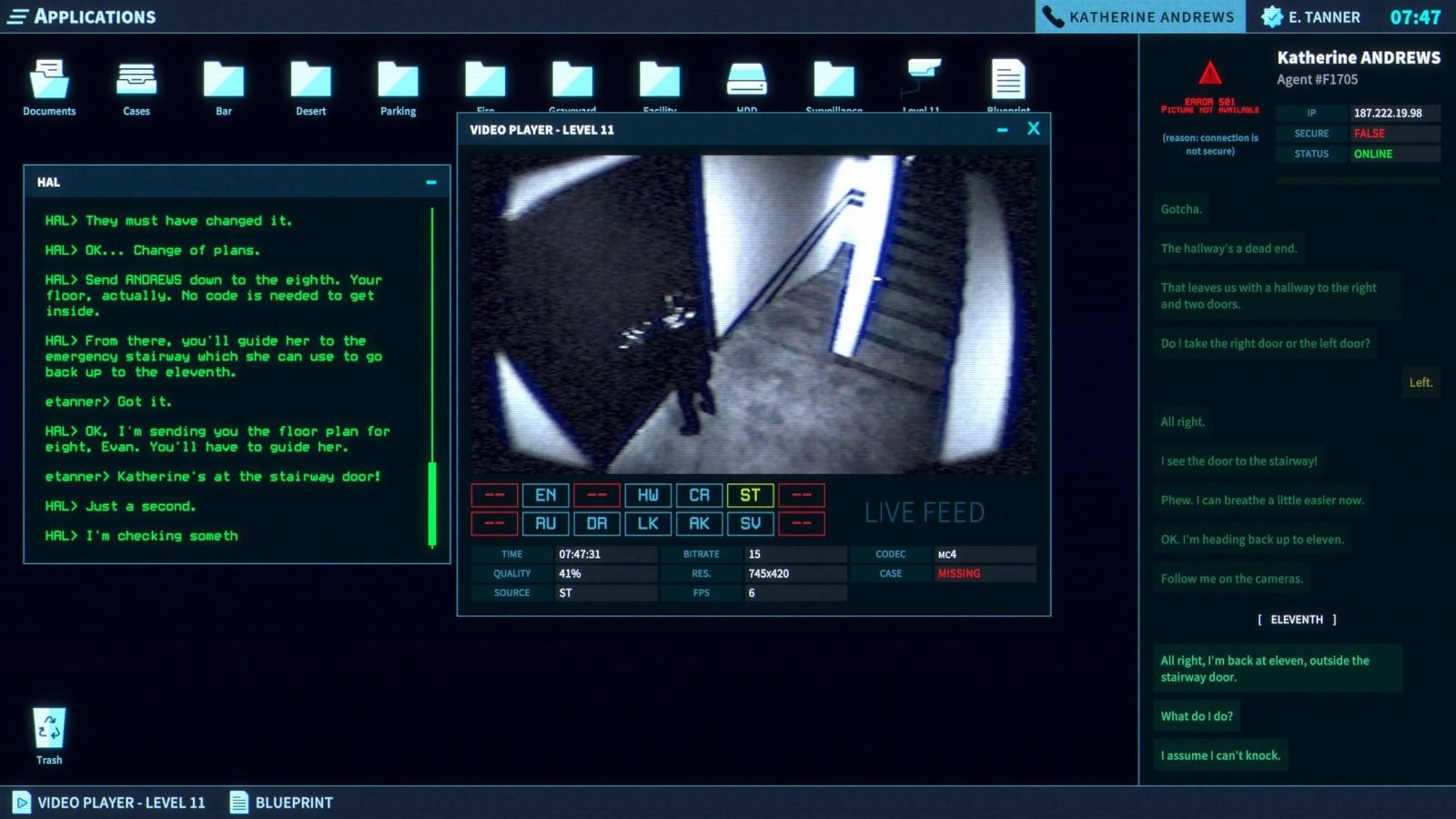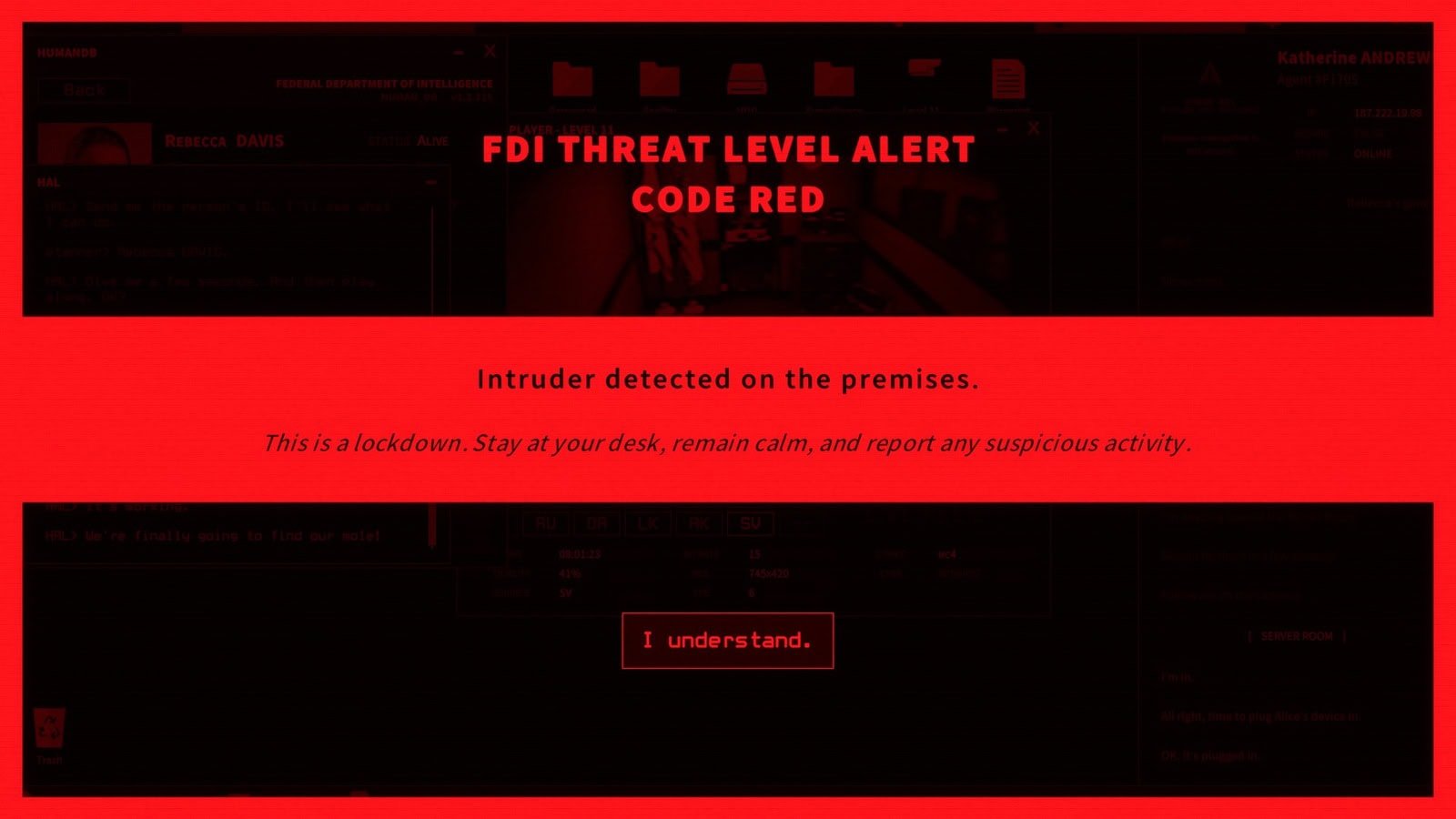It would seem that the glory days of The X-Files are long gone. It was a real phenomenon of the 90s, fondly remembered by movie and UFO fans of the relevant age group. But the world has irrevocably changed, and so have its main themes and semantic guidelines. However, stories about conspiracy theories never lose their relevance. And The X-Files, as it turned out, can still inspire the creators of a new generation. The Operator game is a great example of this.
| Game | The Operator |
| Genre | adventure |
| Platforms | Windows |
| Languages | English |
| Developers | Bureau 81 |
| Publishers | Bureau 81, indienova |
| Link | Steam |
The operator mentioned in the title is you. You are an employee of the American fictional Federal Department of Investigation (FDI as an obvious analogy to the FBI). Your task is to help agents search for and analyze information. Check people in the database, "punch" cars, analyze text, video, and photo materials for possible clues, compare facts to identify inconsistencies, and more.
All this is possible thanks to the Department's powerful IT system. Your work computer has all the necessary programs, including a notepad and a calculator, can recognize key elements in images (e.g. faces, license plates) and gives you access to special tools such as a chemical composition analyzer.
That is, The Operator is a kind of "game in the interface". You could see a similar design approach in, say, Her Story, Orwell: Keeping an Eye on You, A Normal Lost Phone, and other similar projects. Traditionally for this subgenre, The Operator screenshots look a bit dry, monotonous, and cluttered. Some windows, menus, pictures, a lot of text... The old-school 90s design adds atmosphere on the one hand, but looks unfriendly on the other. It seems that the game will gladly overwhelm you with information that will be difficult and not very interesting to understand.
But this is a false impression. The Operator carefully opens up new gaming opportunities and keeps up the pace. At the beginning, you are guided by a supervisor character who gives you clear instructions. The tasks are simple. There are not many materials at hand: even if you want to dig into the details from the start, the game will not allow you to do so. The difficulty increases gradually, but in fact, all that is expected of you at any given moment is a little attentiveness. The fact that The Operator is divided into short logical scenes and does not require you to keep a lot of information in your head adds to the comfort. There are also hints that, although they will not reveal the necessary next action, will definitely push you in the right direction.
Immersion in the game is facilitated by a really exciting plot. Familiarity with the duties of the operator on the first day of the game interrupts the need to take part in the investigation of a mysterious murder. Later, another agent gets in touch from a small town in the desert to skeptically report on a case allegedly related to alien abductions. And then there's more. As it happens in good detectives, seemingly completely independent events quickly begin to intertwine and form a complete eerie picture.
The story of The Operator takes place over just three days. Some may find it too short (it takes about three hours to reach the ending), but there are no fillers in the plot at all. The script does not sag, does not stall, and does not bore you with artificial repetition of game actions and tasks. The Operator holds the intrigue right up to the credits, and fans of The X-Files will be easily hooked by the numerous references to the series.
For all this, one can generally forgive the outright linearity. Yes, there are choices, but most of them have no direct consequences. And at some points, the plot openly forces you to take certain actions for the sake of drama. The developer says that this was a conscious decision. The Operator was created to provide a "one-time" but very rich gaming experience. That's why there is only one possible ending.
In general, The Operator is well aware of its format and limitations. For example, since this is a relatively low-budget development, the cutscenes between game days are made in the form of a sequence of blurred spots. Imagine: the hero finishes his work shift, turns off the computer, and you hear a chair move away. The screen dims and moves away, replaced by the blinding specks of lamps in the corridors of the Department. Then - the flashing lights of the night city. The sound of a lighter, a pause. Now the hero is at home - the TV screen is glowing with a pain, a cat is meowing somewhere behind the scenes... And this is not just a pretentious artistic technique, but an aptly economical way to show the psychological state of the hero, who, according to the script, can only focus on work.
So it's only fair that this niche project has caused quite a stir - it's been a hit with streamers and has sold over 50 thousand copies at the time of this review. It's a really interesting, thoughtful, action-packed interactive story. A bit old-fashioned in its presentation, but very modern in its essence. Look for the truth, which you know is out there and don't trust anyone!


